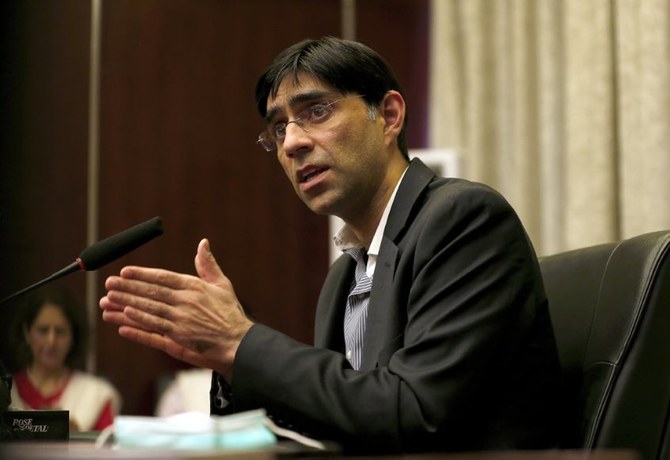ISLAMABAD: Pakistan’s National Security Adviser Moeed Yusuf has said that Islamabad’s expectations from the Taliban are “identical to the West,” urging Afghanistan’s new rulers to protect everyone’s rights.
In the past few weeks, the United Nations and other rights groups voiced concern over a reported surge in human rights violations in Afghanistan after the Taliban took control of the country last month.
In an opinion piece published in ‘The Independent’ on Saturday, Yusuf said: “Pakistan’s expectations of the new government are identical to those of the west.”
He added that Islamabad had repeatedly called for a “government that caters to and protects the rights of all Afghans while ensuring that Afghanistan’s territory is not used for terrorism against any country.”
“This is a goal we share in full with the international community,” Yusuf said.
Ethnic diversity has been at the center of politics and conflicts in Afghanistan, with no single group enjoying a decisive majority in the country of 38 million people.
The Taliban swept into the Afghan capital, Kabul, on August 15, cementing their return to power two decades after being ousted in a US-led invasion in 2001.
Earlier this month, Taliban spokesperson Zabihullah Mujahid announced an all-male interim government, facing intense criticism for not including women or ethnic groups in the setup.
Islamabad has for long been persuading the Taliban to include representatives from its Pashtun, Hazara, Tajik, Uzbek and other ethnic groups in its new regime.
On Friday, at the 20th Shanghai Cooperation Organization Council of Heads of State (SCO-CHS) summit in Dushanbe, Prime Minister Imran Khan said that the Taliban must fulfill its pledges “for an inclusive political structure; where all ethnic groups are represented.”
“This is vital for Afghanistan’s stability. Also, it is important to ensure respect for the rights of all Afghans and ensure that Afghanistan is never again a safe haven for terrorists,” Khan said.
Later, on Saturday, PM Khan said he had “initiated a dialogue” with the Taliban for an inclusive Afghan government to represent the country’s ethnic and religious minorities.
Yusuf said that Afghanistan’s new rulers had also expressed their intention to engage with the world, “even asking western countries not to close down their embassies.”
“This opens up space for the international community to engage constructively with Afghanistan,” he said.
The top security official explained that an “abonnement of Afghanistan” has consequences that the world, especially Pakistan, has “lived through for the past four decades.”
“It is the international community’s collective responsibility to avert a humanitarian crisis in Afghanistan, and to ensure that the threat to all of us from terrorism is ended once and for all,” Yusuf wrote, adding that this required “constructive engagement with the new political reality in Afghanistan.”
















